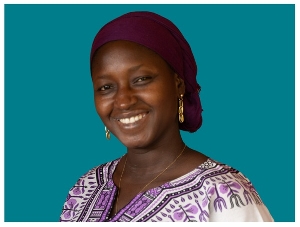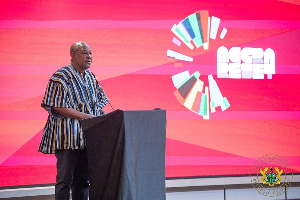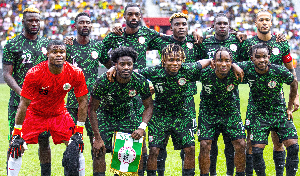Today, as we celebrate International Women’s Day (IWD) under the theme "Inspiring Inclusion," we honor the achievements of women worldwide while advocating for gender equality and the advancement of women's rights. This annual event provides a global platform to raise awareness about gender inequality and call for positive change.
While Ghana has made significant progress in promoting gender equality, there remains a critical need for targeted support for mothers returning to work after maternity leave. Approximately 42% of women, according to data from Ghana Statistical Service, are formally employed in Ghana's labor force, reflecting a notable increase and showcasing the growing participation of women across diverse sectors. However, challenges persist, especially for mothers navigating the delicate balance between work and family responsibilities.
Mothers returning from maternity leave face critical challenges, including limited access to formal childcare services. A mere 6% of children under three have such access, leaving many parents, especially women, struggling to reconcile work and childcare responsibilities. Ghana's labor laws mandate only 12 weeks of maternity leave, and the absence of affordable childcare compounds the issue.
Inflexible work hours, limited maternity leave benefits, and discrimination against working mothers are prevalent issues, hindering their ability to balance professional and family life. Additionally, inadequate breastfeeding support in workplaces and transportation infrastructure deficiencies further contribute to the challenges faced by returning mothers.
Financial pressures often force women to return to work earlier than preferred, impacting their mental health and well-being. The Ghana Living Standards Survey reveals that many households rely on women's income, making it necessary for them to return to work sooner, even if unprepared. Achieving work-life balance is a significant challenge, emphasizing the need for supportive policies and resources.
Addressing these challenges requires a multi-faceted approach, involving government intervention, employer initiatives, and community support. While some advocate for extended maternity leave, it can inadvertently hinder women’s career progression. Balancing the needs of both mothers and employers is essential to create a work environment fostering gender equality.
As we reflect on the theme of "Inspiring Inclusion" in 2024, it is imperative for governments, private institutions, and international bodies to collaborate in support of working mothers. Governments must enact and enforce laws guaranteeing longer maternity leave, flexible work arrangements, and affordable childcare. Private institutions should implement policies accommodating working mothers, including flexible work hours and on-site childcare facilities.
International bodies play a vital role in advocating for global rights, providing guidance, and raising awareness about the challenges faced by working mothers.
Learning from successful gender-responsive initiatives in countries like Sweden, Norway, Denmark, Canada, and Finland, Ghana can strengthen its efforts to support mothers in the workforce.
On International Women's Day, let us reaffirm our commitment to supporting working mothers, fostering a more inclusive and equitable society. Together, through collaboration and concrete actions, we can make a significant impact in promoting gender equality in the workforce and ensuring all mothers have the opportunity to pursue their careers and fulfill their potential.
Opinions of Thursday, 7 March 2024
Columnist: WaterAid Ghana















